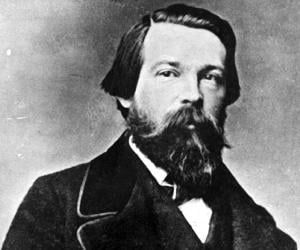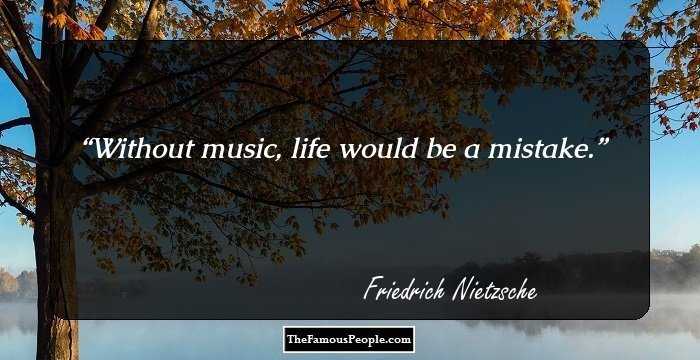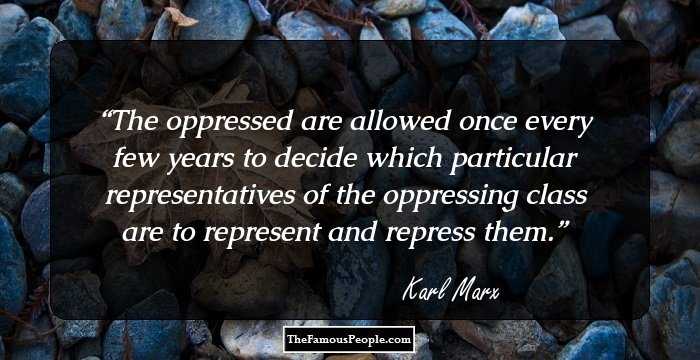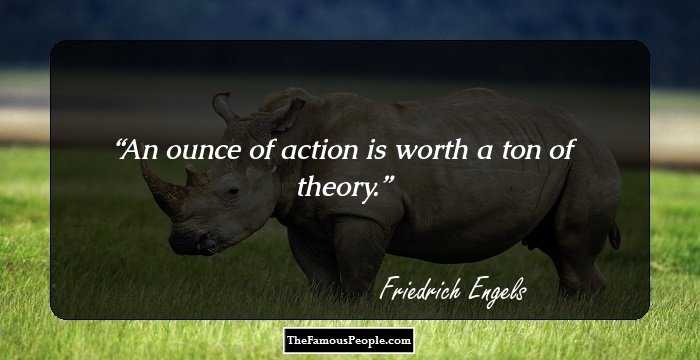
An ounce of action is worth a ton of theory.
Thus at every step we are reminded that we by no means rule over nature like a conqueror over a foreign people, like someone standing outside nature - but that we, with flesh, blood and brain, belong to nature, and exist in its midst, and that all our mastery of it consists in the fact that we have the advantage over all other creatures of being able to learn its laws and apply them correctly.
Just as Darwin discovered the law of evolution in organic nature, so Marx discovered the law of evolution in human history; he discovered the simple fact, hitherto concealed by an overgrowth of idealogy [sic], that mankind must first of all eat and drink, have shelter and clothing, before it can pursue politics, science, religion, art etc.
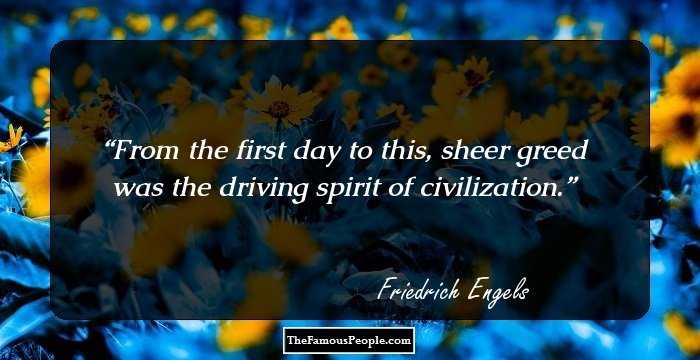
From the first day to this, sheer greed was the driving spirit of civilization.
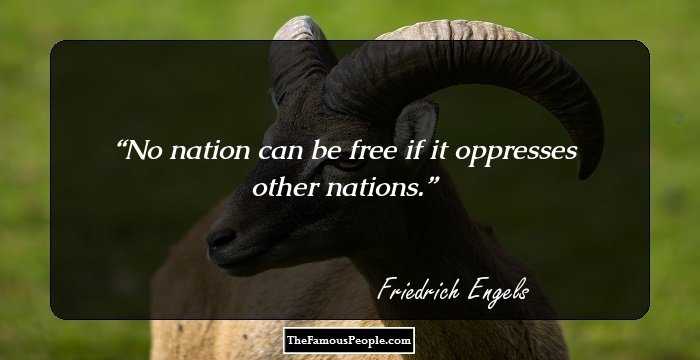
No nation can be free if it oppresses other nations.
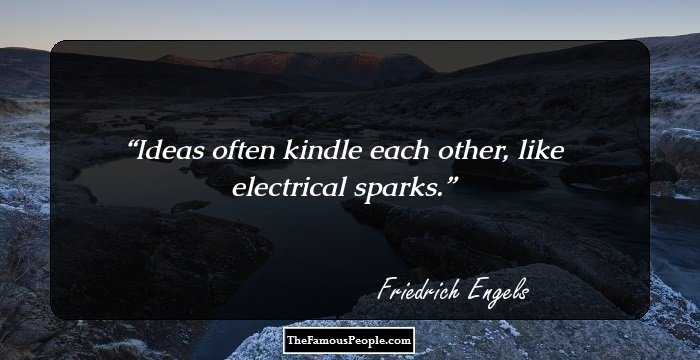
Ideas often kindle each other, like electrical sparks.
...it was always our view that in order to attain this [proletarian revolution] and the other far more important aims of the future social revolution, the working class must first take possession of the organised political power of the state and by its aid crush the resistance of the capitalist class and organise society anew.
A revolution is certainly the most authoritarian thing there is; it is the act whereby one part of the population imposes its will upon the other part by means of rifles, bayonets and cannon - authoritarian means, if such there be at all; and if the victorious party does not want to have fought in vain, it must maintain this rule by means of the terror which its arms inspire...
The proletarians, driven to despair, will seize the torch which Stephens has preached to them; the vengeance of the people will come down with a wrath of which the rage of 1795 gives no true idea. The war of the poor against the rich will be the bloodiest ever waged.
All the other large and small nationalities and peoples are destined to perish before long in the revolutionary world storm... The next world war will result in the disappearance from the face of the earth not only of reactionary classes and dynasties, but also of entire reactionary peoples. And that, too, is a step forward.
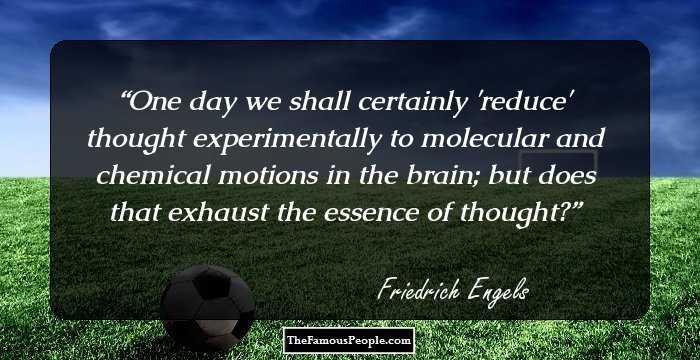
One day we shall certainly 'reduce' thought experimentally to molecular and chemical motions in the brain; but does that exhaust the essence of thought?
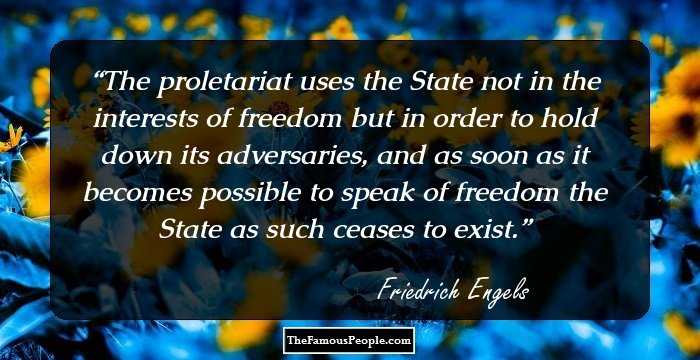
The proletariat uses the State not in the interests of freedom but in order to hold down its adversaries, and as soon as it becomes possible to speak of freedom the State as such ceases to exist.
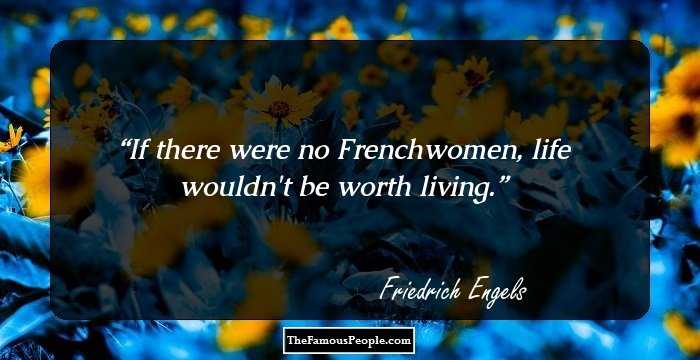
If there were no Frenchwomen, life wouldn't be worth living.
Competition permits the capitalist to deduct from the price of labour power that which the family earns from its own little garden or field; the workers are compelled to accept any piece wages offered to them, because otherwise they would get nothing at all, and they could not live from the products of their small-scale agriculture alone, and because, on the other hand, it is just this agriculture and landownership which chains them to the spot and prevents them from looking around for other employment.
By bourgeoisie is meant the class of modern capitalists, owners of the means of social production and employers of wage labor. By proletariat, the class of modern wage laborers who, having no means of production of their own, are reduced to selling their labor power in order to live.
In 10 years, this sleepy Canada will be ripe for annexation - the farmers in Manitoba, etc., will demand it themselves. Besides, the country is half annexed already socially - hotels, newspapers, advertising, etc., all on the American pattern.
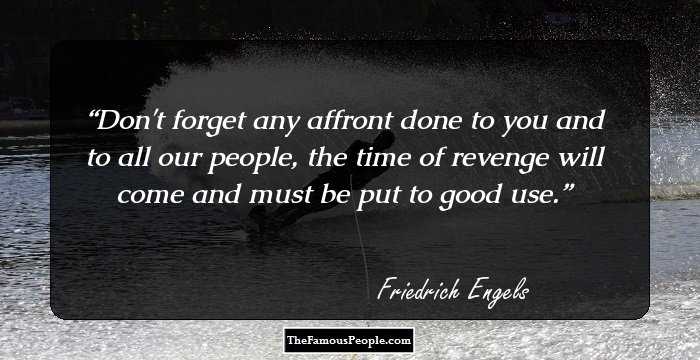
Don't forget any affront done to you and to all our people, the time of revenge will come and must be put to good use.
People think they have taken quite an extraordinarily bold step forward when they have rid themselves of belief in hereditary monarchy and swear by the democratic republic. In reality, however, the state is nothing but a machine for the oppression of one class by another, and indeed in the democratic republic no less than in the monarchy.

It is a curious fact that with every great revolutionary movement the question of 'free love' comes into the foreground.
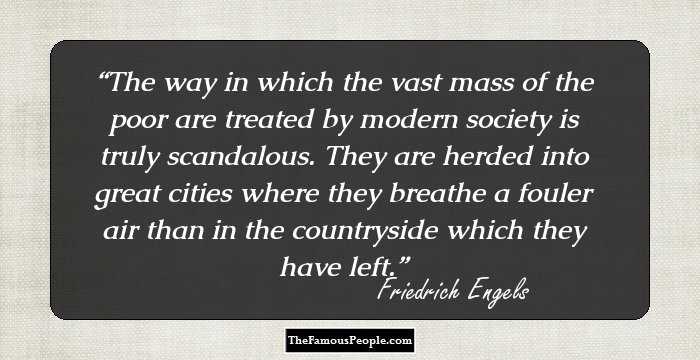
The way in which the vast mass of the poor are treated by modern society is truly scandalous. They are herded into great cities where they breathe a fouler air than in the countryside which they have left.
The first class opposition that appears in history coincides with the development of the antagonism between man and woman in monogamous marriage, and the first class oppression coincides with that of the female sex by the male.
Labour is the source of all wealth, the political economists assert. And it really is the source -- next to nature, which supplies it with the material that it converts into wealth. But it is even infinitely more than this. It is the prime basic condition for all human existence, and this to such an extent that, in a sense, we have to say that labour created man himself.
Naturally, the workers are perfectly free; the manufacturer does not force them to take his materials and his cards, but he says to them..'If you don't like to be frizzled in my frying- pan, you can take a walk into the fire.
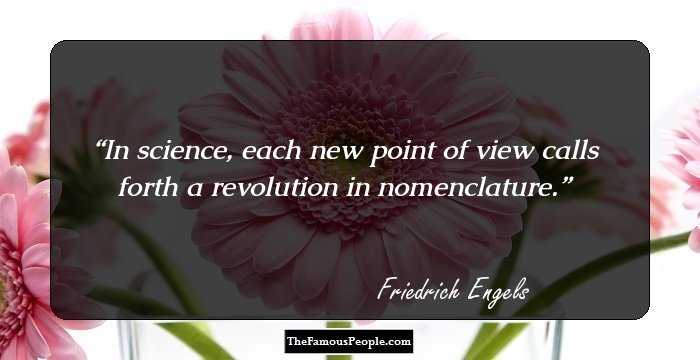
In science, each new point of view calls forth a revolution in nomenclature.
Ireland still remains the Holy Isle whose aspirations must on no account be mixed with the profane class-struggles of the rest of the sinful world ... the Irish peasant must not on any account know that the Socialist workers are his sole allies in Europe.
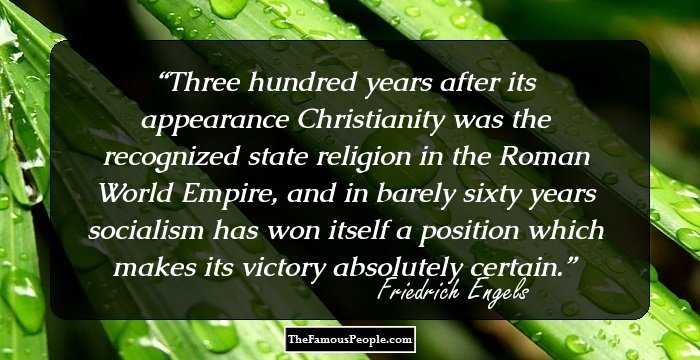
Three hundred years after its appearance Christianity was the recognized state religion in the Roman World Empire, and in barely sixty years socialism has won itself a position which makes its victory absolutely certain.
![I have learned more [from Balzac] than from all the professional historians, economists, and statisticians put together.](https://quotes.thefamouspeople.com/images/quotes/friedrich-engels-92952.jpg)
I have learned more [from Balzac] than from all the professional historians, economists, and statisticians put together.
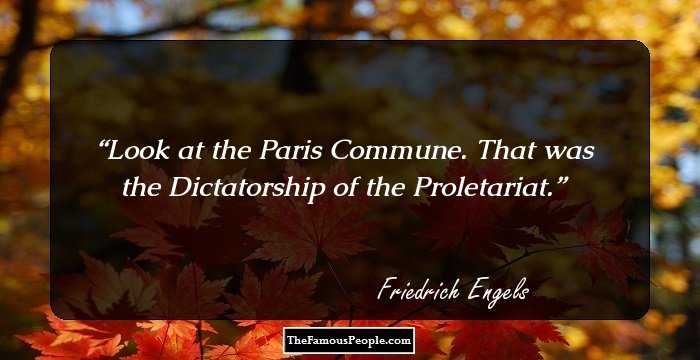
Look at the Paris Commune. That was the Dictatorship of the Proletariat.
The society that will organize production on the basis of a free and equal association of the producers will put the whole machinery of the state where it will then belong: into the museum of antiquities, by the side of the spinning wheel and the bronze axe.
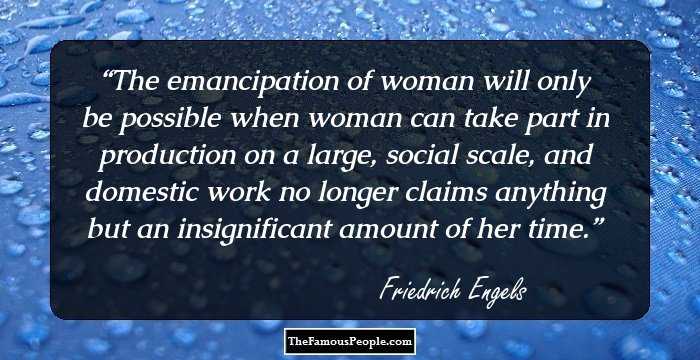
The emancipation of woman will only be possible when woman can take part in production on a large, social scale, and domestic work no longer claims anything but an insignificant amount of her time.

